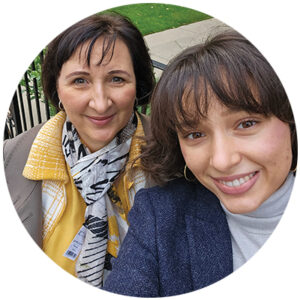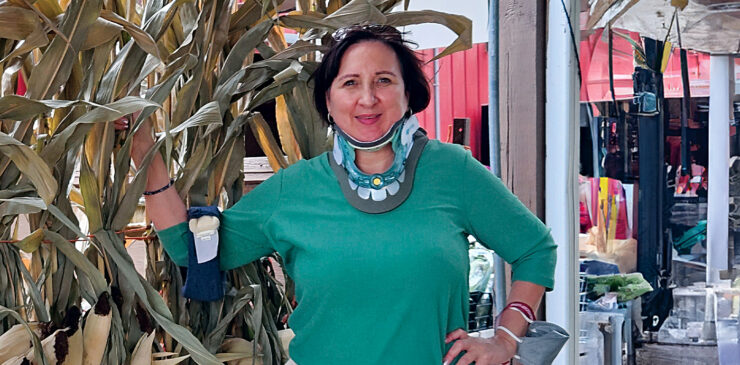Athina has Cranial Cervical Instability, a condition that there is no diagnostic imaging for in Canada to date. “When you talk about something like cancer, everyone knows what it is, but CCI, very few know what it is. So I started a platform for the discussion of it and there are California-based doctors participating,” she shares. In the U.S., people can pay for access to diagnostic imaging for CCI, but in Canada, the options are limited and many do not even know they have the condition. “It impacts a person’s mobility and quality of life,” says Athina.
While cervical MRIs go up to the C2 level, they are not able to capture anything above it. The most important area to capture when diagnosing CCI is the cranial cervical junction where the skull joins the neck. “There are thousands of people running endless circles around the health care system, simply because they have no diagnosis and cannot pinpoint the issue. It’s very frustrating. Time is of the essence because a delayed diagnosis could mean loss of mobility,” she shares.
 There is a need for the medical community to facilitate a better fundamental knowledge transfer to medical school trainees. CCI needs to be in the curriculum so that future doctors are better equipped to help people with it.
There is a need for the medical community to facilitate a better fundamental knowledge transfer to medical school trainees. CCI needs to be in the curriculum so that future doctors are better equipped to help people with it.
The symptoms of CCI can differ from person to person as well, making it extra difficult to diagnose. While some people feel neck pain to extreme levels, others might just feel as if they can’t hold their trunk up at the neck. Others are completely bed-bound, unable to participate in their usual day-to-day activities.
 Athina spent five years researching Lyme and other infectious diseases, as there seems to be a correlation between inflammatory problems and neck issues. When she started building her website, she would ask about CCI in the forums to gather insight for her vision. “There is a section called patient stories and I post current literature from the doctors who are looking at CCI,” Athina says. Her doctor says that CCI was not taught in medical school.
Athina spent five years researching Lyme and other infectious diseases, as there seems to be a correlation between inflammatory problems and neck issues. When she started building her website, she would ask about CCI in the forums to gather insight for her vision. “There is a section called patient stories and I post current literature from the doctors who are looking at CCI,” Athina says. Her doctor says that CCI was not taught in medical school.
“There is a need for the medical community to facilitate a better fundamental knowledge transfer to medical school trainees. CCI needs to be in the curriculum so that future doctors are better equipped to help people with it,” says Athina.
Athina hopes that Ontario will implement an upright MRI for diagnosing CCI and that a task force will be implemented in neurosurgery to build diagnostic criteria. She is in constant conversation with well-researched people across Canada and abroad and has formed a network of friends with similar CCI challenges and medical professionals.
 To learn more about Athina’s work, visit her website: focusonhealing.ca
To learn more about Athina’s work, visit her website: focusonhealing.ca






